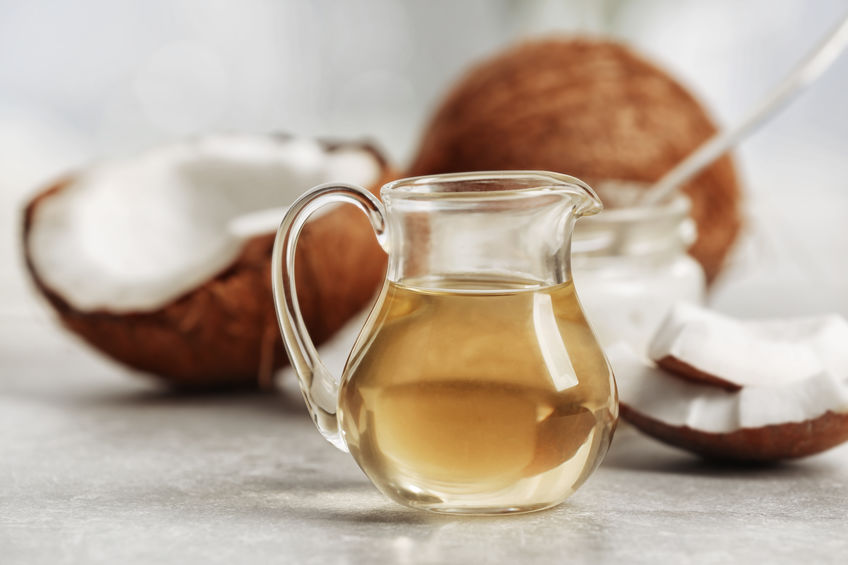What is MCT?
MCT (medium chain triglycerides) is a type of fatty acid found in food like coconut oil. Made up of 6 to 12 carbon atoms, they are metabolized differently from LCT (long chain triglycerides) which are found more commonly in other food. MCT goes straight to the liver and are broken down quickly and efficiently into energy.
There are primarily four types of MCT:
a) C6: Caproic acid
b) C8: Caprylic acid
c) C10: Capric acid
d) C12: Lauric acid
All four MCTs can be found in coconut oil in varying degrees.
What is MCT oil?
MCT oil is synthetic oil, a purified extraction of the coconut oil, making sure it is high in C8 and C10. This ensures that MCT oil does not contain any coconut fat. This also effectively eliminates C12, which is predominant in coconut oil and does not metabolize as quickly as the other MCTs.

What is the difference between MCT oil and coconut oil?
Coconut oil is a mixture of saturated, monosaturated and polyunsaturated fatty acids. The saturated fatty acids are made up of seven fatty acids namely the caproic, caprylic, capric, lauric, myristic, palmitic and stearic acid at various concentrations.
Lauric acid (C12) is the main fatty acid found in the coconut oil, making up 6% of the coconut oil content. However, lauric acid could be either termed as a medium chain or long chain triglyceride; although having only 12 carbon atoms, its absorption behavior during digestion is more similar to long chain triglycerides. Most of the medium chain triglycerides, on the other hand, are directly absorbed into the portal vein during the digestion.
Hence taking coconut oil cannot be said to be equated to taking MCT oil. In fact, of consuming medium chain triglycerides, consuming coconut oil would encompass a large portion of long chain triglycerides which may not be the focus of your targeted diet.
The ultimate difference between MCT oil and coconut oil lies in the MCT make up of each product. MCT oil contains the medium-chain triglycerides in the purest form as compared to other sources.


